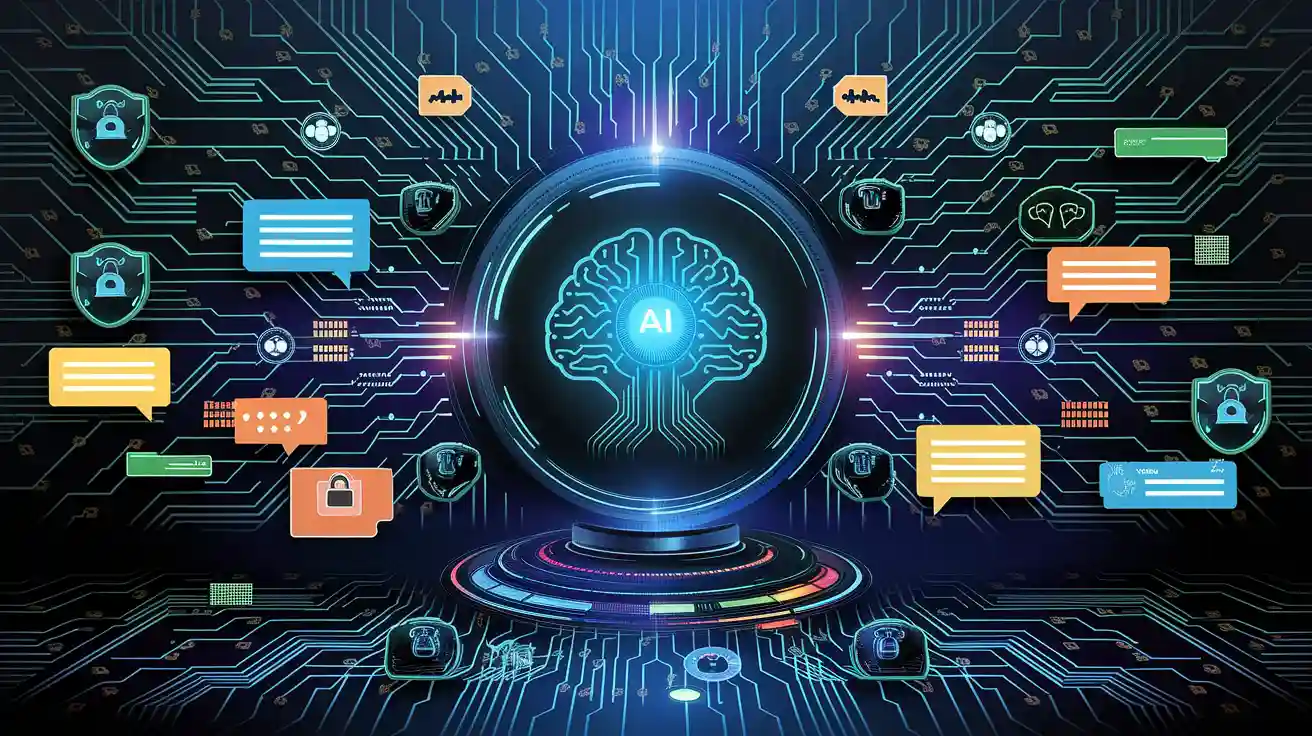How ChatGPT Handles Your Chat Data in 2025

When you use ChatGPT, it keeps your data to get better. This includes your chat history, account info, and details like time or device used. But you’re in charge. You can turn off chat saving, erase your data, or stop it from learning from you. You can also use temporary chats—they’re erased after 30 days. ChatGPT cares about privacy and uses strong security to keep your data safe. You can ask for a copy of your data or remove it from learning through OpenAI’s privacy page. So, does ChatGPT save your chats? Yes, but it lets you control your data easily.
Key Takeaways
You control your data with ChatGPT. Turn off chat saving, erase chats, or choose not to share for training to stay private.
ChatGPT keeps your chats for just 30 days. After that, they are gone forever, lowering the chance of leaks.
OpenAI uses strong tools to protect your data. You can ask for your data copy or delete it anytime on the privacy page.
Does ChatGPT Save Your Chats?
What Data Is Saved
When you talk to ChatGPT, it keeps some information. This includes what you type and the replies you get. It also saves details like time, device type, and location. If you have an account, it stores your name and email. It may also save cookies and your IP address from your browser.
If you share personal or financial details, they might be saved too. But OpenAI makes this data anonymous to protect your privacy. You can turn off chat history to stop saving conversations. This gives you more control over what ChatGPT keeps.
How Long ChatGPT Saves Your Data
ChatGPT doesn’t keep chats forever. New chats are saved for 30 days. OpenAI uses them to check for misuse and improve ChatGPT. After 30 days, the chats are deleted forever. This helps lower the risk of data leaks. If you’re worried, you can delete chats anytime or close your account.
Data Retention in Newoaks AI Integration
In 2025, ChatGPT worked with Newoaks AI for better transparency. Newoaks AI handles user data carefully and follows strict rules. It keeps data only as long as needed. This partnership focuses on trust by reducing risks and giving clear data control options.
How Does ChatGPT Use My Data?
Making AI Smarter with Your Data
When you chat with ChatGPT, it learns to get better. It studies your chats to give smarter answers. For example, using saved chats improved customer help by 35%. Writing quality also went up from 3.8 to 4.5. This means you get more helpful replies over time.
OpenAI cares about your privacy. Personal or money-related details are made anonymous. You can also choose not to share your data for training.
Improving Your Experience
Your data doesn’t just help the AI—it helps you too. ChatGPT uses your likes and past chats to personalize replies. It can remember your favorite topics or match your tone.
Here’s how people use ChatGPT:
Metric | Value |
|---|---|
Active Users (ChatGPT Plus) | |
Average Time Spent per Session | 13 minutes and 35 seconds |
User Retention (after 3 quarters) | 74% |
Most Popular Application | Writing extended prose (6.1%) |
These numbers show how much people trust ChatGPT for tasks. By using your data carefully, ChatGPT makes sure your experience is smooth and easy.
Clear Rules for Data Use
You should know how ChatGPT uses your data. OpenAI has simple rules explaining what’s collected and why. For example, personal info is made anonymous. Chat history is erased after 30 days unless you say otherwise. OpenAI also lets you turn off chat saving or delete your data.
This honesty builds trust. It keeps you in charge of your data. So, when you ask, "how does ChatGPT use my data?" the answer is clear: to improve the AI, make your experience better, and protect your privacy.
User Control and Data Privacy
Turning Off Chat History
You can choose what ChatGPT remembers about your chats. If you turn off chat history, your conversations won’t be saved. This means personal details, like names or private info, won’t be stored. When chat history is off, chats are only used while you’re chatting. After that, they disappear. This feature helps protect your privacy and keeps you safe.
To turn off chat history, go to your settings. It’s simple and fast. Once it’s off, your chats won’t help improve the AI. But don’t worry—ChatGPT will still reply to you just as well during your session.
Removing Your Data
Want to erase your chats or delete your account? OpenAI makes it easy. You can delete your data forever using the OpenAI privacy page. Once deleted, your information is gone from OpenAI’s systems for good. This includes any private details you’ve shared.
Deleting your data means it won’t be used to train the AI or kept for any reason. Whether it’s one chat or your whole account, you’re in control. This is great if you care about privacy or want a fresh start.
Saying No to AI Training
Don’t want your data used to train ChatGPT? You can opt out of training. OpenAI lets you do this to protect your privacy. When you opt out, your chats and personal info won’t be part of the learning process.
Here’s how you can protect your data:
Turn off chat history to stop saving chats.
Use privacy settings to opt out of training.
Delete your data to make sure it’s not used.
These tools make it easy to keep your privacy safe while still using ChatGPT.
ChatGPT keeps your data to get better and help you. You have control. You can delete or manage it anytime.
🛡️ Your data is protected. Strong security keeps it safe.
New updates, like Newoaks AI, aim for clarity and more control.
FAQ
How does ChatGPT keep my data safe?
Your data is locked and protected with strong security. OpenAI uses smart tools to stop leaks or hacking. Your information stays safe.
What if I worry about privacy?
You can control your data in settings. Turn off chat saving, erase chats, or stop training use. These options help with privacy worries.
Can I erase my data for good?
Yes! Go to OpenAI’s privacy page to delete it forever. Once erased, it’s removed from all systems and won’t be used again.
See Also
A Complete Handbook for Adding ChatGPT to Your Website
2024 Comprehensive Manual for Customizing ChatGPT with Personal Data
Engage Your Data: Detailed Instructions for Custom ChatGPT Training
Exploring the Threats and Weaknesses of ChatGPT Security
Responsible Implementation of ChatGPT in Business Automation Strategies

